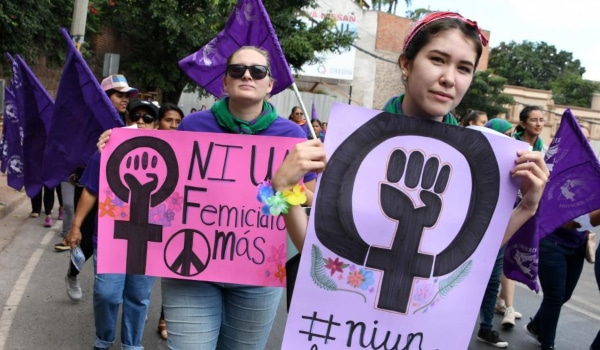
by Amy Braunschweiger, Margaret Wurth
Honduras’ total ban on abortion in all circumstances puts women and girls in danger and violates their rights, Human Rights Watch said today, releasing a web feature on the topic. This excellent article shares moving stories of Honduran women confronting the cruel effects of the abortion law. They include a woman forced to bear her rapist’s child; a woman facing jail after having a miscarriage; women who experienced complications from clandestine abortions; a pro-choice pastor who has faced death threats for her activism; a doctor who cannot always act in her patients’ best interests; and women who share information about safe abortion in secret through an anonymous phone line.
Human Rights Watch saw the consequences of banning abortion during January 2019 interviews with women who had faced unwanted pregnancy, advocates, and service providers. “I wanted to die,” said one woman when she learned of an unwanted pregnancy. “I wanted to destroy myself,” said another. Several said they knew immediately that they needed to have clandestine abortions.
Public health data suggests that at least 40% of pregnancies are unplanned or unwanted at the time they occur. Some unintended pregnancies are caused by rape. Nearly one in four women in Honduras has been physically or sexually abused by a partner, according to a 2011-2012 government survey. The full ban on abortion makes it impossible to know how many women and girls have abortions in Honduras. One Honduran NGO estimated that 50,000 to 80,000 abortions occur each year.
Women said they tried to end unwanted pregnancies using medication, but access to misoprostol is difficult and can be expensive. Many others use clandestine clinics. Several women sought emergency treatment at hospitals afterward for complications such as uncontrolled bleeding or intense pain. Data from the Honduras Health Secretary show that more than 8,600 women were hospitalised for complications from abortion or miscarriage in 2017.
Stories of women suspected of having illegal abortions make headlines in the country each year. One woman profiled in the article was unaware she was pregnant when she went to a hospital in intense pain. Doctors suspected she had attempted an abortion and called the police. She was taken from the hospital in handcuffs and is awaiting trial on criminal charges. Her family is poor and live in a rural village outside Tegucigalpa. Every Friday, she has to travel two hours from her home to the capital, sign a form at the court, and travel two hours back again. Many times, she can’t afford the bus fare, and her mother or neighbours pay her way. This has gone on for two years.
No one has been convicted under the abortion articles of the criminal code in the last three years, according to data from the Honduran Attorney General’s office, but seven people were accused of having or providing abortions and two were detained.
SOURCE: Somos Muchas, Honduras, E-mail 10 June 2019, shared: Human Rights Watch, 6 June 2019 + PHOTO: © 2019 Orlando Sierra/AFP/Getty Images ; + en Español



